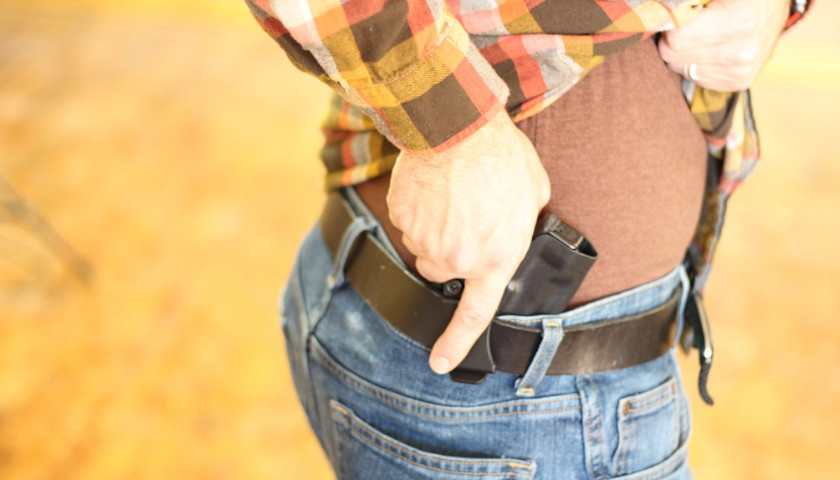by Bethany Blankley
Gov. Ron DeSantis signed Florida’s constitutional carry bill into law on Monday.
HB 543, co-sponsored by state Reps. Bobby Payne, R-Palatka, Chuck Brannan, R-Macclenny, and state Sen. Jay Collins, R-Tampa, who filed a companion bill in the Senate, allows Floridians to carry concealed weapons without a government-issued permit. It also expands law enforcement and educational programs and safety requirements.
After the law goes into effect July 1, Florida will become the 26th state to enact a Constitutional Carry law.
The law removes the state requirement to obtain a conceal carry license in order to legally carry a concealed weapon or firearm. It won’t affect laws related to the purchase of a firearm. A full and complete background check for all legal firearm purchases is still required in Florida. This includes a three-day wait period for purchases of all types of firearms, not just handguns, or until the applicant’s background check is completed, whichever is later.
The law requires a person carrying concealed without a license to obey existing laws prohibiting carrying in places like schools, certain athletic events, and correctional facilities, among others. It also leaves in place current licensing processes for those seeking to obtain a permit for reciprocity or other purposes.
“Floridians shouldn’t need a permission slip from the government to exercise the rights afforded them by the Second Amendment,” House Speaker Paul Renner, R-Palm Coast, said in a statement, adding that it was “the largest expansion of Second Amendment rights in state history.”
Brannan also lauded the bill, saying it “recognizes that while the government has a duty to protect its citizens, its citizens have a right to protect themselves.” He also said he was “very excited about the school safety portions of the bill that continue Florida’s work of improving school safety with new programs and over 50 million new dollars devoted to protect our most precious resource, our children.”
The new law expands community and school safety tools by requiring the Office of Safe Schools to develop a behavioral threat management operational process to guide public and charter schools with identifying, assessing, managing, and monitoring potential and real threats, according to the bill summary.
The office is also required to create a Florida specific behavioral threat instrument to help evaluate student behavior, including identifying those who may pose a very serious threat to the school, school staff or students. The office is required to coordinate intervention and services for the students and parents. When a serious incident or behavior occurs, the school’s threat management team is required to prepare a threat assessment report. The law requires the report and all corresponding documentation to be electronically maintained in a secure and confidential threat management portal to facilitate standardized documentation of threat information.
The law also expands the Chris Hixon, Coach Aaron Feis, and Coach Scott Beigel Guardian Program to private schools, allowing them to assign safety school officers to their facilities.
The law also creates the Florida Safe Schools Canine Program, which includes designating a person, school, or business entity as a Florida Safe Schools Canine Partner. The partner pays for or raises funds for a law enforcement agency to purchase, train, or care for a firearm detection dog.
The firearm dogs will also act as liaisons between students and law enforcement agencies and serve as ambassadors for a law enforcement agency to improve community engagement. K-12 schools and students are encouraged to partner with their local law enforcement agencies to raise money to purchase, train, or care for their schools’ dog.
Senate President Kathleen Passidomo, R-Naples, lauded the bill, citing the valuable tools recommended by law enforcement to “increase the safety of our schools and communities.”
– – –
Bethany Blankley is a contributor to The Center Square.
Photo “Concealed Carry” by Clinger Holsters. CC BY-ND 2.0.







